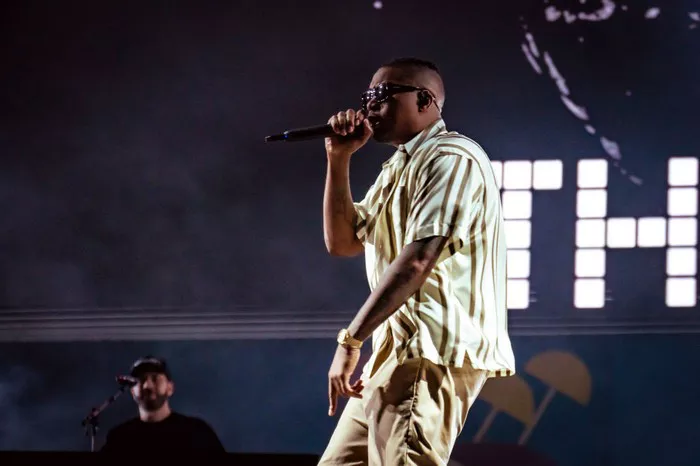Rap music has always been a vibrant and influential art form, reflecting the realities of society with raw honesty. It serves as a powerful medium to express social issues, provoking thought and inspiring change. From the streets of New York City to the favelas of Rio de Janeiro, rap artists have used their art to shed light on the marginalized, fight against injustice, and raise awareness about pressing social problems. **In this article, we will explore how rap music relates to social issues and its impact on society.**
I. A Voice for the Voiceless
Rap music offers a platform for those who have been silenced by society. Through their lyrics, artists address a wide range of social issues such as poverty, racial discrimination, police brutality, and gender inequality. They give a voice to the marginalized, shedding light on the struggles faced by individuals and communities who often go unnoticed.
For example, Kendrick Lamar’s critically acclaimed album “To Pimp a Butterfly” centers around the experiences of Black Americans, tackling topics like systemic racism, mental health, and cultural identity. Lamar’s lyrics, particularly in tracks like “Alright” and “The Blacker the Berry,” resonate with listeners worldwide, as he fearlessly exposes the harsh realities of discrimination and inequality.
Similarly, rap legends like Tupac Shakur and N.W.A have always used their music to highlight police brutality and the mistreatment of Black Americans. Their songs such as “Changes” and “F**k tha Police” sparked important conversations about racial profiling and the abuse of power by law enforcement.
II. Catalyzing Social Change
Rap music has the power to ignite social change by encouraging dialogue, challenging oppressive systems, and mobilizing communities. Its influence extends beyond the music itself, often leading to grassroots movements and political activism.
One prominent example is the hip-hop genre’s connection to the Civil Rights Movement. During the 1980s, artists like Public Enemy and KRS-One used their music to express frustrations with racial inequalities and empower their communities. The iconic song “Fight the Power” by Public Enemy became an anthem for protesters seeking justice and equal rights.
Moreover, rap music can act as a catalyst for social movements in the digital age. Artists today capitalize on social media platforms to spread their message directly and mobilize their fan bases. For instance, in response to the death of George Floyd and the ensuing protests, numerous rap artists, including J. Cole and Killer Mike, released powerful tracks addressing police brutality and racial injustice. Their music served as a call to action, encouraging listeners to join the fight for equality.
III. Unearthing Untold Stories
Rap music delves into the untold stories of marginalized individuals and communities, shining a light on experiences often neglected by mainstream media. From sharing personal struggles to portraying vivid narratives, hip-hop artists reveal the layers of society that are rarely explored elsewhere.
Artists like Nas and Common prioritize storytelling in their music, painting vivid pictures of life in disadvantaged neighborhoods and the challenges faced by their inhabitants. Nas’s classic album “Illmatic” chronicles his experiences growing up in Queensbridge, New York, exposing the realities of poverty and violence. Such storytelling allows listeners to empathize with those facing societal hardships, fostering a greater understanding and compassion.
In addition, rap music often tackles mental health issues, destigmatizing conversations around topics like depression, anxiety, and addiction. Artists like Kid Cudi and Eminem have spoken openly about their personal struggles with mental health, giving their listeners a sense of solace and encouraging them to seek help.
FAQs on Rap Music and Social Issues
1. How does rap music empower marginalized communities?
Rap music empowers marginalized communities by giving them a platform to voice their struggles, raising awareness about their experiences, and fostering a sense of unity. It helps individuals within these communities feel seen and heard, and encourages them to fight against the injustices they face.
2. Does rap music perpetuate negative stereotypes?
While some rap music may perpetuate negative stereotypes, it is important to recognize that the genre is diverse and multifaceted. Many artists use rap as a means to challenge stereotypes and shed light on the realities faced by marginalized groups. It is crucial to consume a variety of rap music and support artists who convey positive messages.
3. Can rap music really bring about social change?
Rap music can indeed bring about social change. It has historically been a powerful tool for sparking conversations, mobilizing communities, and challenging oppressive systems. The genre’s influence extends beyond the music itself, often leading to real-world activism and political engagement. However, true social change requires collective action, and rap music serves as a catalyst in that process.
In conclusion, rap music has an undeniable impact on society, using its lyrical prowess to shed light on social issues, foster empathy, and inspire change. By giving a voice to the voiceless, stimulating dialogue, and unearthing untold stories, rap artists continue to shape the narrative surrounding social justice and equality. As fans and listeners, we have the responsibility to support artists who use their platform to create positive change, and to engage in meaningful conversations surrounding the societal challenges they address.

